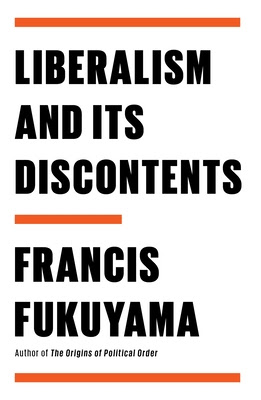Having recently immersed myself in the pages of Francis Fukuyama's "Liberalism and Its Discontents" (completed on June 18, 2023, if we must be precise), I'm led to endorse this work, albeit not without reservations.
Initially, skepticism gripped me. One cannot forget Fukuyama’s audacious, and I'd argue erroneous, claim in "The End of History and the Last Man" back in 1992. Therein, he argued for the zenith of human ideological evolution manifesting in the triumph of liberal democracy post the Soviet Union’s collapse. Such optimism, with the luxury of hindsight, appears rather misplaced.
The book's title resonated, drawing me in. Liberalism, despite its foundational role in shaping Western democracies, finds itself amidst turbulent waters, especially among the very beneficiaries of its ideals. Such a paradox, fraught with peril, intrigued me.
Fukuyama indeed provides a commendable exposition on liberalism's rich tapestry, delineating its foundational tenets and demarcating its boundaries. Notably, his critique of the tangents of neo-liberalism and identity politics, which in many ways have distorted the essence of liberalism, offers much-needed clarity.
But, one can't help but notice Fukuyama's predominantly American lens, punctuated with occasional European detours. This American-centric worldview occasionally conflates empirical realities with personal convictions.
His stance on nation-states stands out. The conundrum of identity within liberal theory, particularly when it grapples with the complexities of national boundaries in states that profess to be liberal, is intriguing. Given liberalism’s underlying premise of free choice and identity as a dynamic spectrum, the coherence of contemporary nation-states branding themselves as 'liberal democracies' becomes suspect. After all, isn’t it striking that borders, often soaked in bloodshed, demarcate these very entities? Reflect upon Catalonia’s secession attempt from Spain, or the fate of the Basque Country, and we witness the juxtaposition of nation states not as liberators but incarcerators.
In its essence, Fukuyama's work invites introspection. It challenges us to interrogate the foundations that have sculpted our political self-image. This book serves as an essential springboard for contemplation, especially since the discourse surrounding liberalism's merits and contributions remains, and should remain, an open-ended conversation.


No comments:
Post a Comment